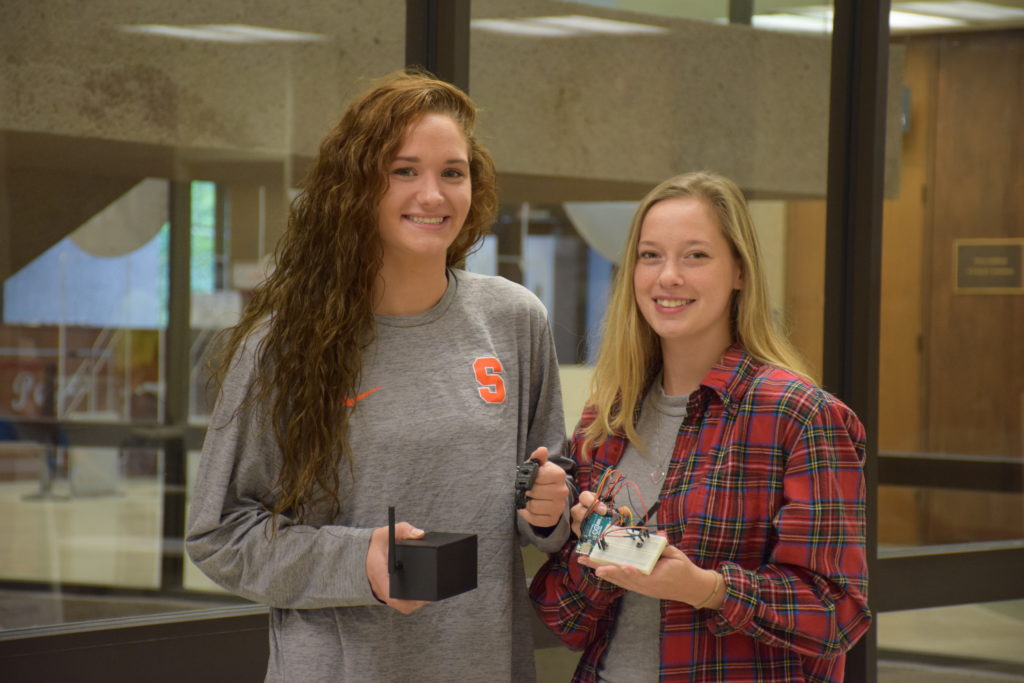
Annabelle Lincoln ‘20 and Jaclyn Hingre ‘19, both Engineering and Computer Science students, embody what it means to be passionate entrepreneurs. They are driven, willing to soak up knowledge, and most importantly, are doers.
So when they found an opportunity to improve campus security and safety, they took on the huge challenge.
During the Invent@SU accelerator program at Syracuse University, Lincoln and Hingre teamed up to create Halo. Halo is a discrete and portable device that uses radio frequency waves to alert local police and campus public safety officers when there is an emergency situation, via a GPS pinned location. It is designed for students who need help on or near a college campus, and does not require a cellphone or internet service.
This idea, paired with the team’s dedication and problem solving abilities, earned them the $3,000 and second prize in the competition.
Lincoln and Hingre are both mechanical engineering majors with an aptitude for entrepreneurship. Both come to problems with innovative perspectives on how to turn a pain point into an opportunity, and facilitate change. Hingre even has an idea book she’s had since high school.
When asked how they were able to come up with Halo as their idea for Invent@SU, Lincoln said, “You should feel safe on a college campus, and we’re trying to make it safer.”
Hingre added, “This is a very prevalent issue. This is something no one should have to experience.”
By the end of the program, they were able to produce a prototype that worked, and got amazing feedback from judges and guest evaluators. As part of the program, they also filed a provisional patent.
The pair said that they knew they were onto something special when they consulted with the Department of Public Safety (DPS) officers on campus. “When we first started the conversation, the officer saw no flaws in the way we use cellphones to report and prevent emergencies. But by the end, he had been able to see the gaps, and where our product could benefit,” said Hingre.
Lincoln added, “He even asked how quickly we could get this to the market.”
But, it wasn’t easy. Hingre and Lincoln reflected on their experience and hard work it took to create and prototype Halo, and to turn it into a winning pitch. From having to learn what a radio frequency signal even is, to celebrating in joy when the sensor first began picking up GPS coordinates, to crafting a compelling competition pitch, to finally hearing their team name announced at the Invent@SU award ceremon, they attest that dedication and persistence gets the job done.
Story by Kayla Simon, Blackstone LaunchPad Fellow, co-founder of In-Spire, and first prize winner of 2017 Invent@SU